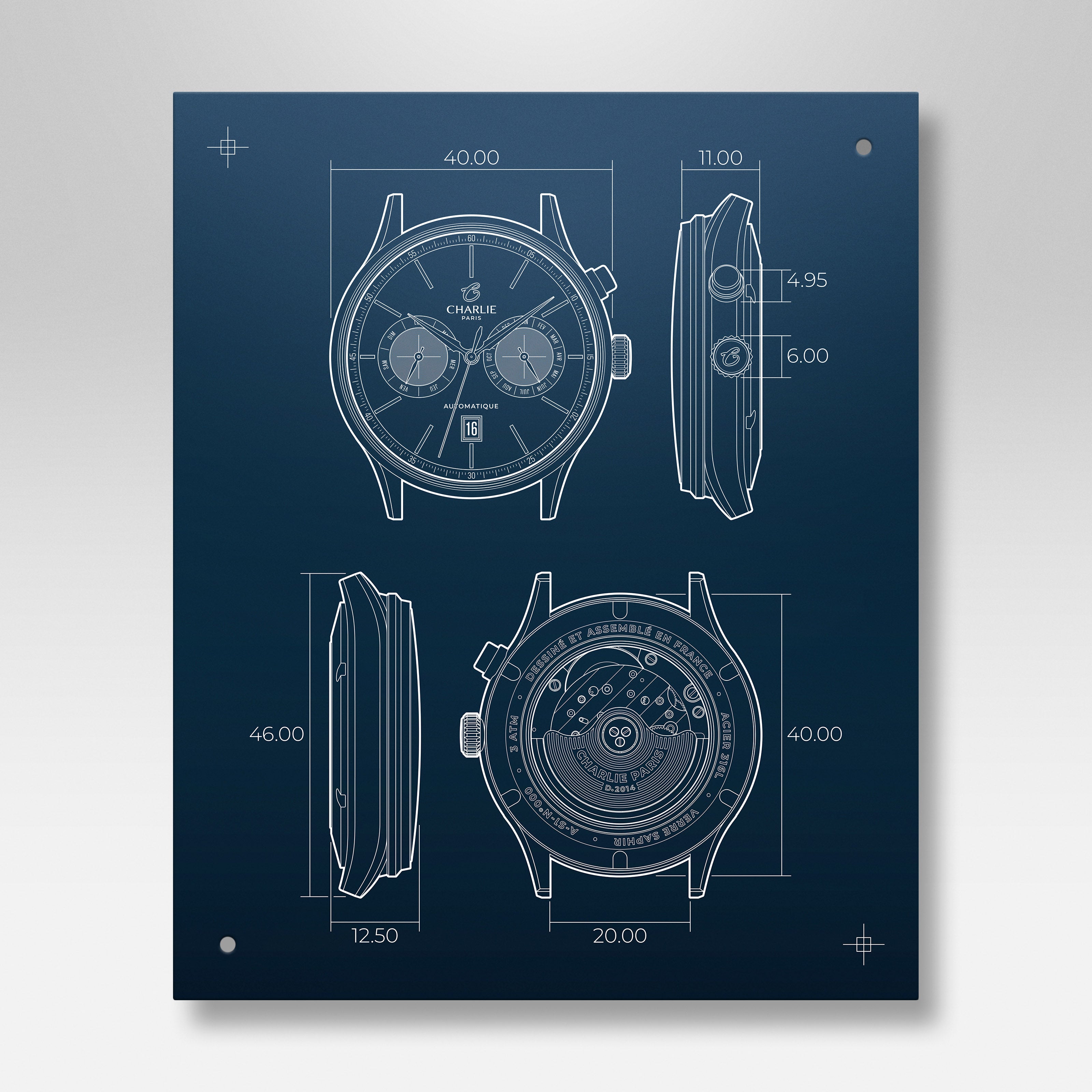
Sapphire, mineral or acrylic glass, which glass to choose for your watch?
When you want to buy a watch, you can be interested in the glass that composes it. In watchmaking, there are three categories of watch glass; acrylic glass, mineral glass and sapphire glass. What are the differences between these 3 watch glasses used in the watch industry? In this article, we will present you their specificities, their advantages as well as their possible disadvantages.
- Acrylic watch glass or hesalite glass: Acrylic glass is a glass derived from plastic commonly called Plexiglas. The advantage of this type of glass is that it is extremely light and economical. However, it is not very resistant to shocks and breaks easily. It also scratches much more easily than other types of glass, but it is easy to re-polish. Acrylic glass has a Vickers hardness of 500 which is relatively low, Vickers hardness being an index measuring the strength of materials.
- Mineral watch glass: Mineral glass is a much stronger glass than acrylic and is the most commonly used glass in watchmaking. It is a glass in the classical sense of the word, in the sense that it is not a compound derived from chemistry. Mineral glass, although heat-treated to be scratch-resistant, can be scratched by high friction. Unlike acrylic glass, mineral glass is more difficult to polish again, so the entire glass must be replaced. Also, in case of strong impact, this type of glass can break, even if this is not common. Mineral glass has a Vickers hardness of 650 to 800, which means that mineral glass is a strong glass but can be damaged after a few years.
- Sapphire watch glass: Sapphire glass is a compound that is created in the laboratory. More expensive to produce than the glasses previously studied, sapphire glass is obtained from aluminum oxide crystallized at very high temperature (2050 ° to be precise), it has the same chemical properties as natural sapphire. Thanks to its chemical properties, sapphire glass is a very hard and resistant component (Vickers hardness equal to 2300), it is the second hardest component after diamond. For comparison, it is also 7 times harder and stronger than tempered steel. Thus sapphire glass is a glass that is very difficult to break or scratch.
Watch glasses at Charlie Paris
At Charlie Paris, all our men's watches as well as all our automatic watches for women are equipped with a sapphire glass, in order to guarantee them the best possible longevity. It should be noted that the thickness of the glass also affects the shock resistance of a watch. The thicker the glass, the stronger it is. On our sport models, we have therefore chosen to offer them with a thicker sapphire glass than on our city models.
ATTENTION! Just because the glass of your watch is very resistant does not mean that the inside is as well. So, if you drop your automatic watch with a sapphire glass, it will appear intact from the outside but the movement's gears may have been damaged by the shocks. It will then be appropriate to go to your watchmaker to have it revised. It is important to have a watch with a quality glass but this should not prevent you from treating your watch with the utmost care!











Leave a comment
This site is protected by hCaptcha and the hCaptcha Privacy Policy and Terms of Service apply.